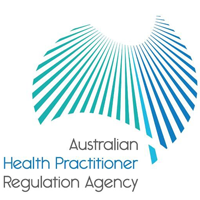AHPRA self-reporting requirements
From MIPS’ perspective, the main issues affecting its members’ mental health has been self-prescribing, inappropriate use of medications, poor performance, mandatory reporting (reporting others), disputes with colleagues and allegations of bullying.
At the recent National Pre-Vocational Medical Education & Training Forum in Darwin, experienced GP and MIPS clinico-legal adviser and chair of the MIPS Claims Senior Management Group addressed this issue and iterated that MIPS regularly assists members with previously diagnosed mental health issues where self-reporting to AHPRA is encouraged.
In recent years, various studies such as the findings of the beyondblue health surveys of doctors and students have gained momentum within the medical industry.
Patients place a great deal of trust in their health practitioners and as a result practitioners gain more confidence in their practice of healthcare; however, this doesn't make them exempt from self-defence mechanisms such as self-deception and denial.
Key AHPRA self-reporting requirements
You must notify to AHPRA within seven days of any:
- serious police charges
- loss of professional indemnity insurance
- loss of hospital rights/restrictions
- Medicare billing limitations
- prescribing restrictions
- changes to registration in another country.
At registration renewal you must notify of:
- impairment
- criminal charges or convictions
- withdrawn/restricted billing privileges
- failure to meet mandatory registration standards.
AHPRA has a defined process for assessing practitioner health. MIPS can assist its members with this.

Mandatory reporting
Completing a mandatory notification is generally a confronting issue for most healthcare practitioners and one which most practitioners are reluctant to undertake.
Importantly, MIPS clinico-legal advisers are exempt from the mandatory reporting of MIPS members and are frequently contacted by members to discuss, in confidence, whether they have an obligation to make a mandatory report.
In most cases, MIPS advises member colleagues to approach and discuss their concerns with the individual practitioners concerned. Convincing a colleague to self-report not only helps them, but is also beneficial to you. However if this is not done in a timely manner a mandatory report should be made. There have been cases of some practitioners being cautioned for not reporting colleagues.
Recent data shows 57% of mandatory reports concerned standards and 30% impairment.